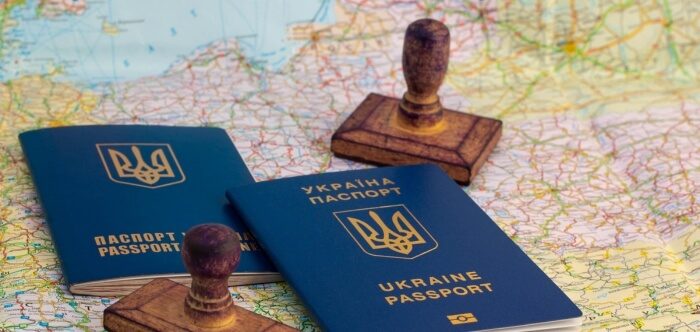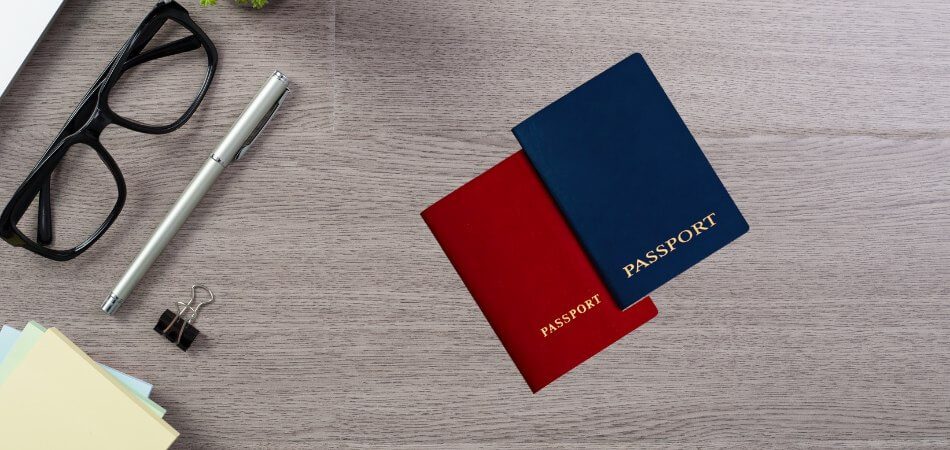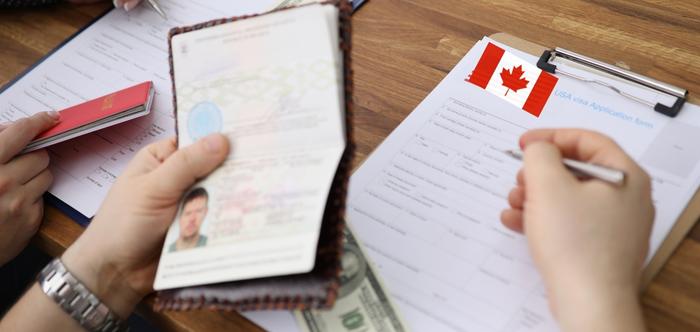Finding your way around the complexities of travel documentation can be daunting, especially when it comes to distinguishing between different types of visas. Because of this one common question travelers ask is: “Is a Conference Visa the Same as a Tourist Visa?”
No, a conference visa and a tourist visa are not the same. While a Conference visa is specifically designed for those attending meetings or conferences, a Tourist visa is meant for general tourism and leisure travel. Each type of visa has its own set of requirements and purposes, tailored to the nature of your visit.
To understand these differences more clearly and ensure your travel plans are hassle-free, keep reading as we explore the specific details and guidelines for each visa type.
Conferences & Tourist Visas- What Are They?
When planning an international trip, it’s crucial to know what you’re going to do and what kind of visa you’ll need. A conference visa is designed for people attending professional conferences or other events in other countries. This type of visa is designed to ensure that participants can enter a country specifically for work-related commitments. For a smooth travel experience, understanding conference visas is crucial.
Tourist visas, on the other hand, are intended for those looking to explore new destinations and enjoy leisure activities. This visa allows visitors to enter a country for sightseeing, relaxation, or visiting family and friends. It’s a simple process designed for travelers who want to enjoy their vacation without any work-related activities. Ensuring you have the correct visa type is key to avoiding any travel issues.
Both types of visas are necessary for entering a foreign country, but they serve different purposes. While each has its specific requirements, the application process is straightforward and typically easy to follow. Knowing which visa you need depends on the nature of your trip and your travel goals. Whether you are attending a conference or going on a holiday, securing the right visa will help make your journey stress-free and enjoyable.
Types of Conference Visas
When planning to attend international conferences, securing the correct visa is crucial. Different countries offer various visa categories specifically designed for attendees. Here we explore the key types of conference visas and their unique features:
Tourist Visa
Tourist visas are commonly used for short visits. Participants can attend conferences under this visa if not engaging in paid activities. It’s ideal for those attending rather than working at events. This visa is easier to obtain than others, requiring fewer documents.
Cultural Exchange Visa
This visa supports those presenting cultural values or educational insights at conferences. It’s perfect for speakers and exhibitors promoting cultural exchange. The application process demands proof of your role and contribution at the event. It usually has strict guidelines and criteria.
Short-term Study Visa
If the conference includes educational workshops or credited sessions, this visa may be required. It’s designed for attendees engaging in short-term learning. Proof of enrollment in conference workshops is necessary. The visa duration aligns with the event’s educational schedule.
Business Conference Visa
Business Conference Visas are ideal for professionals attending corporate meetings, trade shows, or seminars. It is especially relevant to those planning to attend international conferences, like upcoming professional conferences in Canada. This visa requires details of the business event and your professional role, often requiring a letter from your employer and an event invitation. Bridging global professionals with industry-specific conferences, this visa ensures you meet all necessary legal requirements for entry.
Group Visa
Group visas are convenient for delegations attending a conference together. This option simplifies the process for groups traveling from the same country. All members must attend the same event and travel simultaneously. It offers a streamlined application and collective documentation.
Selecting the correct Conference visa type is vital for your travel and participation in international events. Each type is designed to fit the specific nature of the conference and the attendee’s role, ensuring that delegates meet the legal requirements for entry. Whether you’re an academic, a business professional, or a government representative, understanding and choosing the right Conference visa is key to a successful and hassle-free international engagement.
Types of Tourist Visas
Tourist visas come in various forms, each designed to cater to the diverse needs of global travelers. From short-term excursions to extended explorations, these visas accommodate different travel objectives. This guide demystifies the types of Tourist visas, helping you choose the right one for your journey.
Single-Entry Tourist Visa
Ideal for a one-time visit, the Single-Entry Tourist Visa allows entry into a country once. After exiting, re-entry isn’t possible with the same visa. It’s perfect for short vacations or specific events like weddings. The focus here is on a singular travel plan without return visits.
Multiple-Entry Tourist Visa
For those planning multiple visits within a period, the Multiple-Entry Tourist Visa is suitable. It permits several entries, making it ideal for frequent travelers or business tourists. It’s favored by those with family abroad or who travel for work frequently. This visa offers flexibility for ongoing travel needs.
Long-Term Tourist Visa
Designed for extended stays, the Long-Term Tourist Visa suits travelers seeking prolonged exploration. This type is popular among retirees or digital nomads. Applicants often need to demonstrate financial means for the extended duration. It’s a fit for those wishing to immerse in a country’s culture deeply.
Each visa type is tailored to various travel intents – from single and multiple entries to long-term stays. Choosing the right Tourist visa ensures a smooth travel experience, aligning with your travel goals and duration preferences. Remember, selecting the appropriate visa type is key to a hassle-free and enjoyable journey.
Is a Conference Visa as The Same as A Tourist Visa?
No, a conference visa is not the same as a tourist visa. They are different in purpose and requirements, appealing to different types of traveller. Knowing these differences is crucial for a smooth international travel experience. Below is a detail explanation:
Definition and Purpose
A conference visa is specifically issued to individuals attending a conference, seminar, or workshop. Its primary purpose is to allow attendees to participate in events related to their fields of expertise. Tourist visas, on the other hand, are granted to people who wish to visit a country for leisure or sightseeing.
Duration and Activities Allowed
Conference visas typically cover the duration of the event, including a few days for travel or sightseeing. This visa restricts holders to activities related to the conference. In contrast, tourist visas offer more flexibility, allowing travelers to explore the country without such limitations.
Application Requirements
The application process for a conference visa often requires an invitation letter from the event organizers. Applicants must provide details about the event and their role in it. Tourist visas usually require proof of accommodation and return tickets but are less stringent about specific plans during the stay.
Cost and Processing Time
Conference visas can sometimes be expedited at the request of the hosting organization, potentially leading to quicker processing times. They may also be less expensive than tourist visas due to their shorter duration and specific nature. Tourist visas vary in cost and processing time, depending on the country and the length of stay.
Impact on Subsequent Visas
Holding a conference visa can positively impact future visa applications within the same context, demonstrating the traveler’s compliance with visa regulations. Tourist visas, while less targeted, still require adherence to the country’s immigration laws during the stay.
Choice of Visa Type
Choosing the correct visa type is essential. For attending specific events, a conference visa is appropriate, ensuring entry and participation. For general travel and tourism, a tourist visa is suitable, providing broader access to the country’s attractions.
In essence, while both Conference and Tourist Visas facilitate international travel, they serve different purposes and have unique requirements. It’s important to choose the visa that aligns with your specific travel intentions to ensure compliance and ease during your journey. Understanding these key differences will aid in making informed visa decisions.
General Requirements for Getting a Visa
Applying for a visa, regardless of the type, involves meeting certain standard requirements. These criteria are essential to ensure a successful application process. Understanding these general requirements can streamline your visa application and enhance your chances of approval.
- Valid Passport: Your passport must be valid for at least six months beyond your intended stay. It should have at least two blank pages for visa stamps.
- Completed Application Form: A fully completed and signed visa application form is mandatory. This form varies by country and visa type.
- Photographs: Recent, passport-sized photographs that meet specific size and background color requirements are necessary. These photos should be clear and front-facing.
- Travel Itinerary: Proof of your travel plans, including flight reservations and hotel bookings, must be submitted. This shows the purpose and duration of your visit.
- Financial Means: Evidence of sufficient funds to cover your stay is required. This can be bank statements or a letter from a sponsor.
- Travel Insurance: Many countries require proof of travel insurance that covers the duration of your stay. This insurance should include health coverage.
- Visa Fee: Payment of the visa application fee is a prerequisite. Fees vary based on visa type and country.
- Health and Character Certificates: Some countries demand health checks and police clearances to ensure you’re in good health and character. These must be from recognized institutions.
While specific conference visa requirements can vary by country and visa type, these general criteria are commonly expected in most applications. Ensuring you meet these basic requirements is the first step towards a successful visa application. Remember, thorough preparation and attention to detail can significantly enhance the likelihood of your visa being granted.
Travel Tips for Visa Applicants
Visa applications can be daunting, especially for those planning to attend international events. To ensure a smooth application, it’s crucial to be well-prepared and informed. Listed below are some practical tips to help visa applicants:
Start Early
Apply as soon as possible. Delays are common and can be stressful if your time is short. The early application reduces the risk of unexpected issues. This is especially vital for those attending a conference on a B2 visa.
Know the Visa Requirements
Each country has specific visa requirements that must be met. Research thoroughly to ensure you have gathered all the necessary documents. Incorrect or incomplete applications are often delayed or denied. You can find the most accurate requirements on the websites of consulates.
Prepare Your Documents
Organize documents according to the consulate’s checklist. Commonly required documents include a passport, photos, and a travel itinerary. For business or conference visas, an invitation letter is crucial. Ensure all documents are current and valid for your travel dates.
Practice for the Interview
Many visa applications require an interview at the consulate. Practice answering typical visa interview questions succinctly. Be honest and concise in your responses. The interview assesses your travel intentions and situation.
Follow Up Respectfully
After your application, a polite inquiry can show your continued interest. Do not excessively contact the consulate; once or twice is sufficient. Check your email regularly for any updates or requests. Respect the process and be patient for a decision.
Final Thoughts
Understanding the intricacies of different visa types, especially when distinguishing between a Conference and a Tourist visa, is pivotal for hassle-free international travel. The question, “Is a Conference visa the same as a Tourist visa?” is crucial for travelers to consider.
Clearly, they are not interchangeable, with each catering to specific travel needs, be it attending professional events or leisurely explorations. Recognizing this distinction not only clarifies the visa application process but also ensures compliance with international travel regulations.
Being well-informed about these differences and meticulously preparing your application is the key to a successful and enjoyable journey across borders. Remember, the right visa aligns seamlessly with the purpose of your trip, paving the way for an enriching travel experience.








